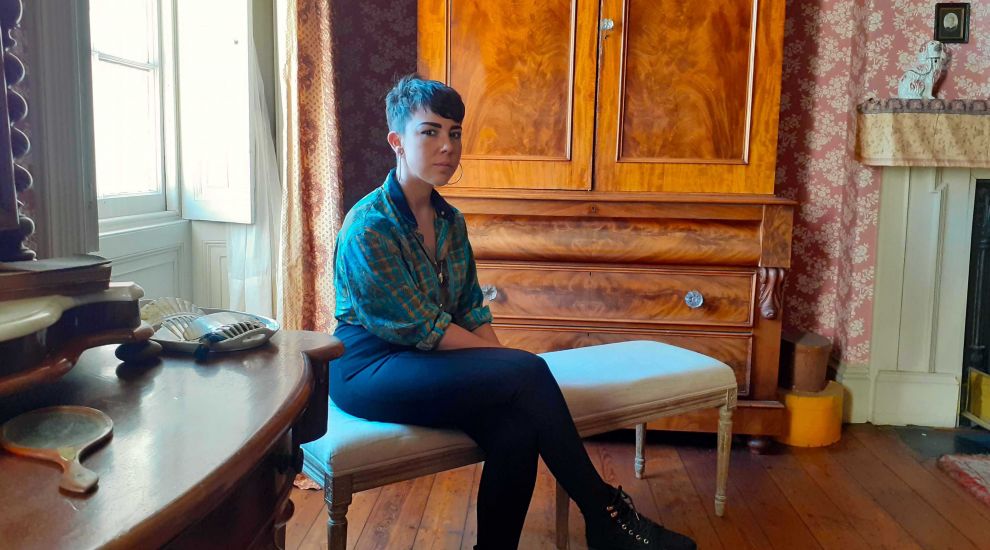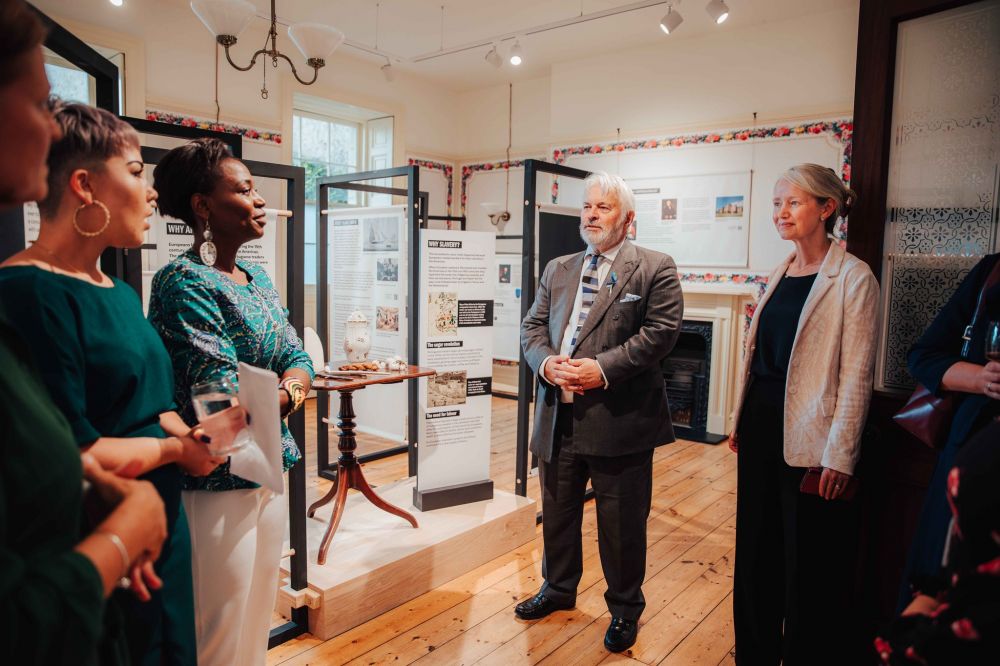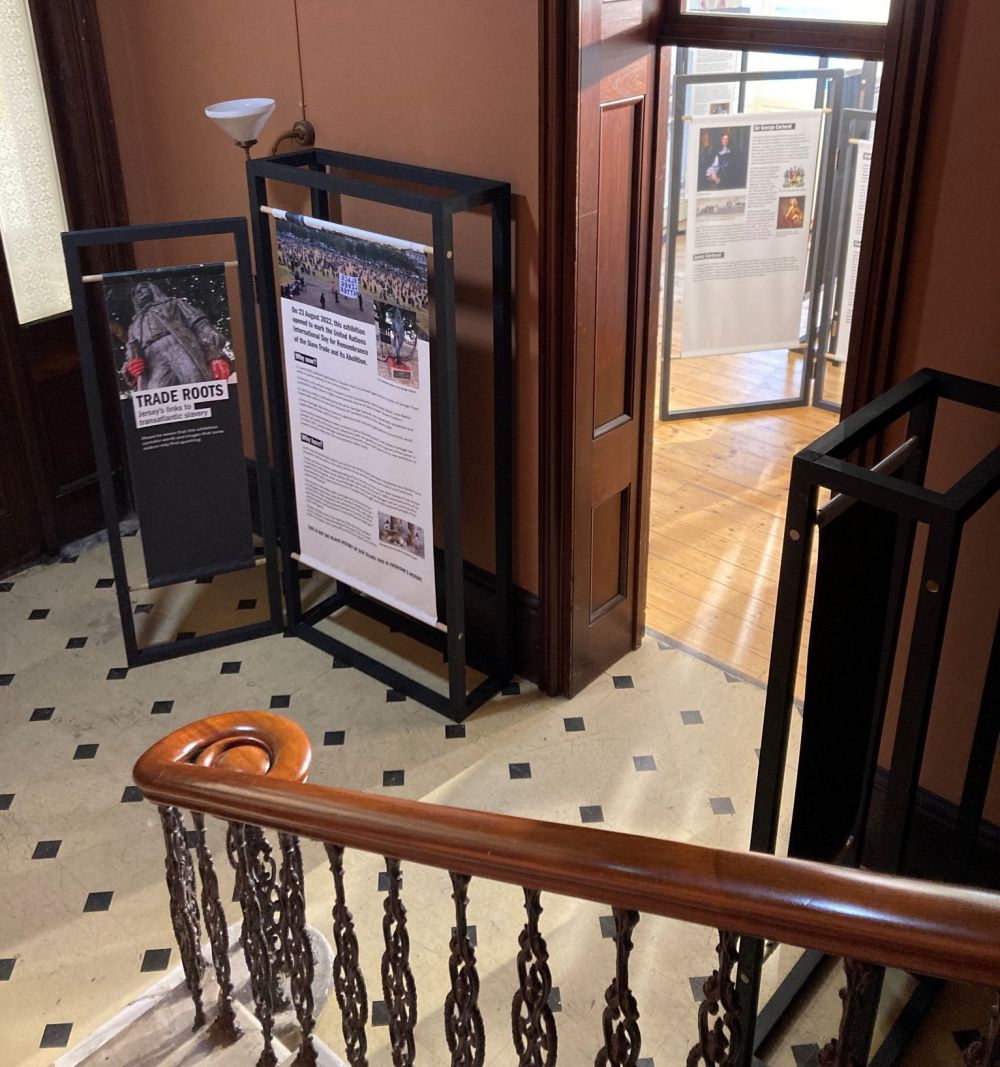


This week, a new exhibition designed to expose some uncomfortable new stories from Jersey's past and the legacies of slavery opened at the museum-linked Victorian House on No. 9 Pier Road.
In a powerful speech at its opening, Co-Curator Jade Ecobichon-Gray explained how 'Trade Roots' aimed to bring to the fore voices of individuals whose history had been "whitewashed".
Today, Express shares it in full...
"Museums are not just buildings filled with things, they are places of identity, connection and belonging.
Each object, artefact or piece of art tells a story, shaping our national or regional identity, connecting us to our history and providing a greater sense of belonging to our communities and those who came before us.
But the objects that have been placed here, the stories that are told here, are not random, they are curated to draw out a particular narrative and distil a specific kind of understanding, one that has all too often aligned itself with the dominant and mainstream narrative of history. History that was written by the conqueror, those people in our society who held the power, the privilege, and the pen.
A story is not a universal truth. The events of the past could be narrated in a variety of different ways depending on whose point of view we uphold, whose voice we give power to, whose words are deemed profound enough to live on in the pages of our history books. For too many years those in our society who have been brutalised and marginalised have also been silenced, their faces have been unseen, their stories have been untold, and their history has been whitewashed.
Decolonising history is a process of asking ourselves whose narrative is this? Which point of view is missing? Whose story is untold? Because when it comes to historical interpretation none of us are objective, we are shaped by our social and cultural understanding of the world, the way we have been taught to see and make sense of the things around us.
In the UK just 5% of museum staff are from a Black or minority ethnic background, which means that diversity of viewpoints, differences in historical understanding of objects and their context is sorely lacking. For many years the mahogany staircase in the home behind us was simply an emblem of the wealth generated by historical islanders, a showpiece denoting success. Its existence was not tied to the largest forced migration in human history, its beauty was not linked to the barbarism and brutality of the transatlantic slave trade, a trade which birthed anti-blackness and inequality that has continued societally, systemically, and institutionally to the present day.
2020 is not the year that racism and inequality started, it is the year that it began to be acknowledged globally. It is the year when society finally started asking itself the difficult questions and stayed silent long enough to hear the answers that have been both a historical and living truth for marginalised communities. 2020 is the year the Diversity and Inclusion Committee was formed at Jersey Heritage, signalling a turning point in our community and its history. Voices that had previously not been heard in rooms where curatorial decisions were made, now had a seat at the table and an opportunity to share their story, their history, their interpretation.

Pictured: The Bailiff, Sir Timothy Le Cocq, and the Chief Minister, Kristina Moore, were shown around the exhibition by Jade and other members of JHDIG.
The work we have undertaken in the past two years has been phenomenal and I am truly grateful to everyone who has given up their time to share their insights, it isn’t always easy to speak your truth in spaces where it has been unheard for so long, but Jersey Heritage, particularly Louise Downie and Lucy Layton, created a space of diversity and authentic inclusion. This was not simply a nod to D&I it was a genuine commitment to decolonising history in order to tell the whole story. My thanks also go out to Lesley Katsande and Vic Tanner Davy, none of this would be possible without your insights, knowledge, and passion to create positive change.
This journey has challenged me, as a Jersey born woman of mixed-race, I am both a descendant of enslaved people and an islander. Our names are part of our history, a link to the men and women who came before us. My good old Jersey surname of Ecobichon is a reminder of my island identity it places me in my own history and heritage. My surname of Gray is a reminder that my ancestors were once the property of a Scottish slave owner in Jamaica. This history and heritage stops there. Where we came from before is unknown, who we were before we were forcibly enslaved is unknown, which African country, tribe and dialect that birthed us, raised us, and gave us voice is unknown. This side of my family history ends in brutality, it stops the moment the middle passage started. Two truths, two narratives, two races, one whole identity. You see, I like to think that I am living proof of our ability to hold two narratives at the same time. I benefit from white-assumed privilege, and I experience pain related to racial trauma inflicted on my family. Both of these things exist within me, and one does not negate the other.
Decolonising history is much like this, an ability to acknowledge two or more narratives at the same time without seeking to create a hierarchy based on white supremacy. The history of Jersey’s links to the slave trade is one that has been untold for too long, it is not something that happened over there, away from our island shores, we are a part of that history. Wealth generated from the trade in human beings was held here, it contributed to this island’s economic, political and social development, Jersey families profited whether they were present on the plantations or not. That is a history that feels uncomfortable, but that does not mean it isn’t worthy of being told. Change does not reside within our comfort zone, and the world is calling for change. What is our island’s response going to be?
The mahogany trade is not well known in the broader history of transatlantic slavery. Undertaken largely in British Honduras, some of our key historical figures weren’t just following the lead of others they were instrumental in the creation of plantations and the rise of mahogany trading built off the back of enslaved Black people. This exhibition seeks to share that history, to show what has not been seen, to give voice to what has not been heard, to recognise and represent a view of our history that too many of us would rather forget.

Pictured: The Trade Roots exhibition is based at The Victorian House as new research had shown that it was built partly on the profits of the transatlantic slave trade.
Today we bring it into the light, understanding that in keeping it hidden from the pages of our history books we have missed so many opportunities to learn from it. The events of 2020 were immensely sad but not shocking to those who understand the whole story of our history. Curating an exhibition about the transatlantic slave trade isn’t just maritime history, it’s human history, it isn’t just Black history, it’s our history and if we have any chance of tackling its insidious legacy characterised by persistent and continued social and economic inequalities, we must all be prepared to value our heritage enough to confront the full reality of our past, so that we can work together to create a better future.
We do not inherit guilt, but we do inherit responsibility. We have all been shaped by colonialism, and many in our society have been harmed by it.
On this International Day for the Remembrance of the Slave Trade and its Abolition the question is, what role can you play in changing the narrative for future generations?"
Following the release of a report exposing the Victorian House's ties to the transatlantic slave trade last year, Express spoke to Jade about the legacies of slavery...
Jade has previously written about racism, white privilege, the Black Lives Matter movement and wellbeing for Express. Explore her columns below...
The connection between Black Lives Matter and Bouley Bay
What does 'white privilege' mean?
Would you choose to be a Black person in 2020?